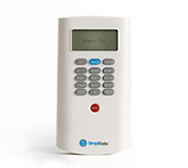
Medicare Creates New Anti-Identity Theft Cards for 2018
Victims of medical identity theft pay, on average, more than $13,500 to clear and reclaim their own names. Through no fault of their own, Americans are continuously targeted for identity theft through compromise of bank accounts, debit cards, employment documents and medical records . Those with Medicare and Medicaid have been especially vulnerable to medical identity theft since, in years past, patients’ social security numbers (SSN) have served as the foundation of their patient identification numbers, known as health insurance claim numbers (HICN). These digits have been displayed on Medicare cards, as well as on medical records maintained in offices and mailed to patients’ homes.
The Centers for Medicare & Medicaid Services (CMS) are aiding in deterring medical identity theft by issuing new Medicare cards in 2018. The new cards will show unique Medicare Beneficiary Identifier (MBI) numbers, which will replace the use of SSN as identity verification. This action comes as a result of the Medicare Access and CHIP Reauthorization Act of 2015, which requires CMS to delete social security numbers from Medicare cards by April 2019.
Replacing the SSN-based Health Insurance Claim Number (HICN) with a new MBI means that all Medicare transactions, including eligibility status, billing and claims will not be accessible nor generated through use of the patient’s SSN. Additionally, the replacement of the SSN-based HICN on all Medicare cards will allow CMS to better protect both private health care and financial information as well as federal health care benefit and service payments.
The CMS are currently working on remodeling their data and billing systems. The MBIs are ready to go, but they must get the word out before mailing new cards. Since rifling through residential garbage is a tried and true method of identity and medical identity theft, the CMS want to make sure that their clientele is taking the proper precautions to protect themselves before sending new cards in the mail.
In the meantime, those who have used the old Medicare cards in the past, and those interested in securing their identities should:
- Pursue identity protection services that monitor for potential threats, scan for instances of identity misuse, restore identities if they have already been compromised and offer reimbursement plans for clients.
- Protect personal information (especially Medicare and SSN) and be wary of anyone offering free medical equipment or services requesting your Medicare number. If it is, in fact, free, your number is not needed.
- Never allow anyone to borrow your Medicare ID card. This is highly illegal.
- Check all medical bills, summary notices and credit reports to verify correct entries.
- Report suspected Medicare fraud or medical identity theft to the Department of Health & Human Services Office of Inspector General Hotline.
The transition period is slated to begin on April 1, 2018, and continue through December 31, 2019. During this period, patients and providers may use the new MBI or the old, SSN-based HICN numbers while the old numbers are phased out. The CMS advise all clients to check the CMS website regularly for updates on the new Medicare cards.
Comments are closed.